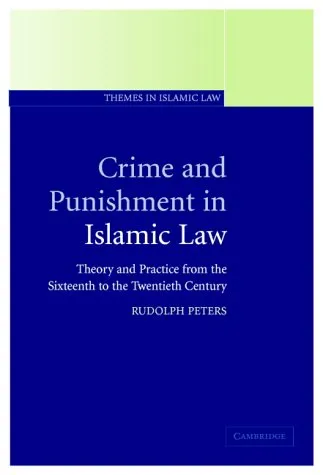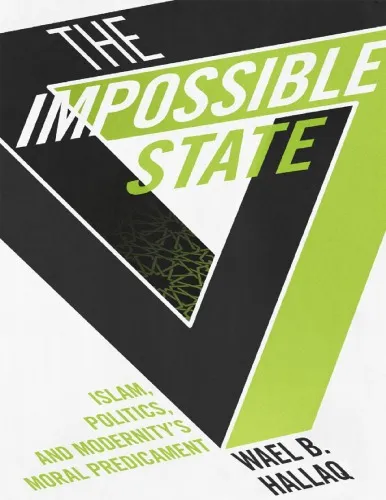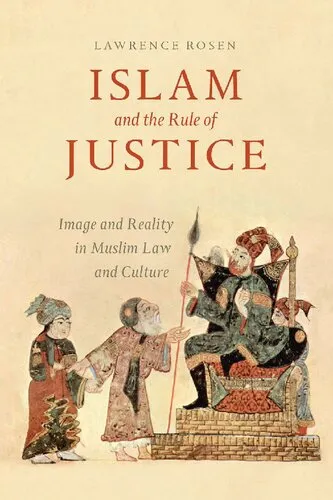Crime and Punishment in Islamic Law: Theory and Practice from the Sixteenth to the Twenty-First Century (Themes in Islamic Law)
3.8
Reviews from our users

You Can Ask your questions from this book's AI after Login
Each download or ask from book AI costs 2 points. To earn more free points, please visit the Points Guide Page and complete some valuable actions.Related Refrences:
Persian Summary
Introduction
Understanding the multifaceted nature of Islamic law requires a deep dive into its historical evolution, theoretical foundations, and practical applications. "Crime and Punishment in Islamic Law: Theory and Practice from the Sixteenth to the Twenty-First Century" serves as a comprehensive exploration into these dimensions, providing insights into how Islamic criminal law has developed and functioned over the centuries.
Detailed Summary of the Book
The book provides an in-depth analysis of Islamic criminal law, traversing from its classical formulations to contemporary adaptations. It addresses the formulation and interpretation of Islamic legal principles concerning crime and punishment, primarily focusing on hudud crimes, which include offenses like theft, adultery, and apostasy. The narrative begins in the sixteenth century, an era when the Islamic world was undergoing significant transformations, and extends to the twenty-first century, highlighting how these laws have adapted or resisted change.
In detailing the evolution of Islamic law, the book underscores the various schools of Islamic jurisprudence and how their interpretations have impacted the administration of justice within Islamic societies. The author also addresses the modern-day implications of these laws, particularly in areas where traditional interpretations conflict with international human rights standards.
Key Takeaways
- The historical context is vital for understanding the formation and evolution of Islamic criminal law.
- There is a significant diversity in how Islamic criminal law has been interpreted and applied across different regions and periods.
- Contemporary applications of Islamic criminal law often raise challenging questions regarding human rights and modern legal standards.
- The book highlights the tension between traditional Islamic law and the pressures of modern nation-states to reform legal systems.
Famous Quotes from the Book
"The application of Islamic criminal law is as much a reflection of political will as it is of religious obligation."
"Throughout history, the interpretation of crimes and punishments under Islamic law has been influenced by myriad social, political, and economic factors."
Why This Book Matters
"Crime and Punishment in Islamic Law" is an essential resource for scholars, students, and anyone interested in the intersections of religion, law, and society. It provides a nuanced understanding of a complex system of jurisprudence that continues to influence millions of lives today. The book not only educates about the past but also serves as a dialogue with the present, offering perspectives on how Islamic law can coexist with contemporary legal frameworks. Its comprehensive approach makes it an invaluable addition to the field of Islamic legal studies, offering clarity and depth that is both academically rigorous and accessible to a broader audience.
By bridging the historical with the modern, this book paints a detailed picture of how Islamic law surrounding crime and punishment has been both resilient and adaptable, making it a crucial reference in understanding one of the world's major legal traditions.
Free Direct Download
You Can Download this book after Login
Accessing books through legal platforms and public libraries not only supports the rights of authors and publishers but also contributes to the sustainability of reading culture. Before downloading, please take a moment to consider these options.
Find this book on other platforms:
WorldCat helps you find books in libraries worldwide.
See ratings, reviews, and discussions on Goodreads.
Find and buy rare or used books on AbeBooks.
1429
بازدید3.8
امتیاز50
نظر98%
رضایتReviews:
3.8
Based on 0 users review
"کیفیت چاپ عالی بود، خیلی راضیام"




